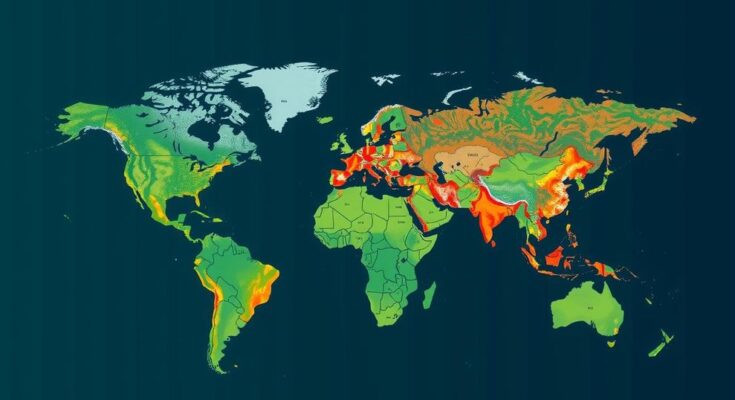Climate change complicates vaccination efforts by altering disease patterns and affecting vaccine storage and efficacy. The WHO notes significant successes in vaccination, but extreme weather threatens these gains. Furthermore, increasing vaccine hesitancy, exacerbated by misinformation and political rhetoric, creates a precarious situation for public health. Diseases like cholera and dengue are on the rise due to climate impacts, signaling an urgent need for effective vaccination strategies.
Climate change is significantly transforming the global disease landscape, facilitating the spread of illnesses and creating environments conducive to new outbreaks. Research indicates that climate change not only escalates the necessity for vaccinations but also complicates their distribution. The World Health Organization (WHO) estimates that worldwide vaccination initiatives have saved over 154 million lives in the past fifty years; however, extreme weather conditions undermine this success by damaging vaccine stocks and disrupting their transportation and effectiveness, as highlighted in a recent study published in “Nature Climate Change.”
Hesitance towards vaccinations has escalated, particularly following the COVID-19 pandemic, with certain politicians promoting anti-vaccine sentiments, thus creating a precarious situation for public health. Disease outbreaks linked to climate change, such as cholera and dengue fever, are becoming increasingly prevalent, particularly in low-income regions. Warm and humid conditions foster bacterial growth and vector proliferation, further exposing populations to health risks. For instance, following recent hurricanes, Florida witnessed an increase in dengue cases due to the favorable breeding conditions for mosquitoes left by subsequent flooding.
The impact of climate change extends to vaccine viability, with high temperatures and varying humidity levels threatening vaccine efficacy by denaturing proteins essential for their effectiveness. Many vaccines require stringent storage conditions, making them susceptible to damage during extreme weather events. Furthermore, as external temperatures rise, human immune responses may alter, potentially diminishing vaccine effectiveness. Misleading information on vaccination, particularly proliferated through social media, exacerbates vaccine hesitancy, further endangering public health efforts.
Prominent political figures have contributed to this climate of doubt, with Robert F. Kennedy Jr. being a notable example of the anti-vaccine discourse in the United States. Should he be appointed to a significant health position, his influence over vaccine regulation could hinder vaccination campaigns, especially if misinformation continues to undermine public confidence. Experts assert that the intertwining of climate change and vaccine hesitancy poses a significant threat to public health in a world increasingly vulnerable to disease outbreaks.
Governments must provide transparent and accountable information regarding vaccinations to combat misinformation, demonstrating the critical need for public trust in health initiatives while addressing the dual challenges posed by climate change and public skepticism.
The intersection of climate change and public health is increasingly relevant as researchers identify the profound effects of environmental changes on disease dynamics. Climate change is contributing to more frequent and severe outbreaks of infectious diseases, especially in resource-limited settings where healthcare infrastructure may be compromised. Vaccines have proven essential in protecting against such diseases, yet environmental factors can impact their efficacy and availability. Furthermore, the rise in vaccine hesitancy poses additional challenges to disease control efforts, facilitating an environment where misinformation thrives and populations remain vulnerable.
Climate change is reshaping the global health landscape, necessitating a reevaluation of vaccination strategies, especially in light of increasing environmental challenges. The simultaneous rise in vaccine hesitancy and climate-related diseases poses significant risks, undermining efforts to maintain public health through immunization programs. To address these challenges effectively, comprehensive strategies that include transparent communication regarding vaccines and proactive adaptation to climate impacts are essential.
Original Source: www.nationalobserver.com




